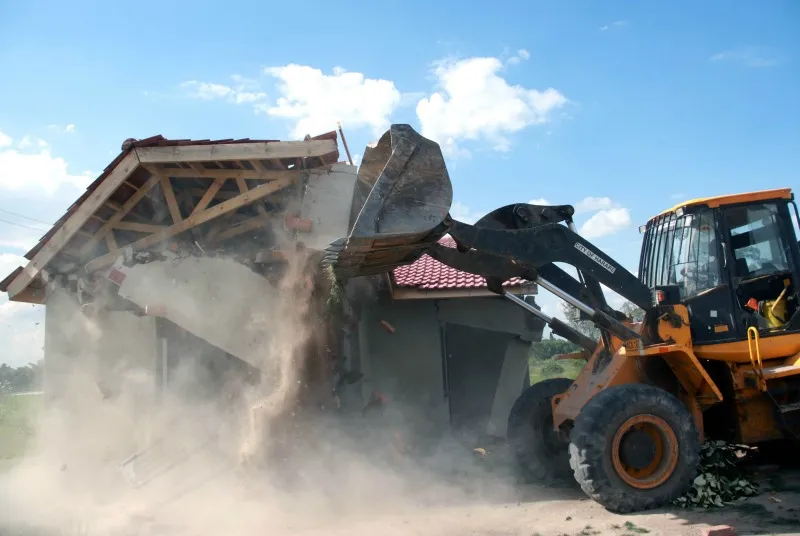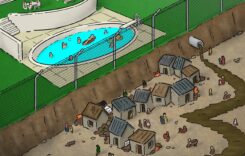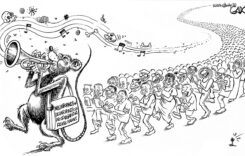CLAIM: Zimbabwe social media is abuzz with both true and some fake reports of demolitions of illegal settlements by government agencies and local authorities around the country, which has triggered a debate on the legal ownership of Communal land where some of the evictions are taking place.
Is it true that ownership of this land is vested in the State President?
TRUE OR FALSE? – True
What has triggered the demolition scare?
Since the beginning of February, Zimbabwe’s social media and WhatsApp platforms have circulated reports of, and threats of demolition of illegally built houses and settlements in peri-urban communities, including Chipinge in Manicaland, Dema and Goromonzi in Mashonaland East, Mushandike and Gutu in Masvingo, where people had acquired stands from traditional leaders.
A widely shared video clip showed Masvingo Provincial Affairs and Devolution Minister Ezra Chadzamira warning residents illegally settled on communal land, local authority land, peri-urban land, rural service centres or growth point land to vacate immediately, urging people to acquire land through legal procedures.
Who owns communal land?
Section 4 of the Communal Lands Act vests power over Communal land in the President who shall permit it to be occupied and used in accordance with the Act.
Can traditional leaders parcel out land
While traditional leaders are granted authority, jurisdiction, and control over communal land by section 282 of the Constitution, there are limitations to their power listed in Section 26 of the Traditional Leaders Act regarding the allocation of communal land. The law states that:
- No land shall be allocated in terms of this Act except with the approval of the appropriate rural district council, which shall be the administrative authority with overall control over the use and allocation of all Communal Land.
- The allocation of Communal Land in terms of this Act shall be carried out in accordance with the Communal Land Act [Chapter 20:04] and in such manner as prescribed.
- No Communal Land shall be used in any manner or for any purpose other than that provided for by or in terms of the Communal Land Act [Chapter 20:04] or authorised by or in terms of any other enactment.
- No inhabitant shall dispose of any Communal Land used by him, or subdivide such land for any purpose, without the approval of the village head granted subject to this Act and the Communal land Act.
The Traditional Leaders Act list the following as duties of leaders with regards to communal land:
Chiefs
- Ensure that Communal Land is allocated in accordance with Part III of the Communal Land Act [Chapter 20:04] and ensure that the requirements of any enactment in force for the use and occupation of communal or resettlement land are observed
- Prevent any unauthorised settlement or use of any land
- Notify the rural district council of any intended disposal of a homestead and the permanent departure of any inhabitant from his area, and, acting on the advice of the headman, to approve the settlement of any new settler
Headmen
- Oversee, through the ward assembly, the disposal of settlement rights in Communal Land and the admission of new settlers in the area under him.
Village heads
- Handle requests for settlement by new settlers into the village and, in consultation with the village assembly, to make recommendations on the matter to the ward assembly.
Who grants permission to occupy and use Communal Land?
A Rural District Council may, with the approval of the Minister, issue a permit authorizing any person or class of persons to occupy and use land subject to the Regional, Town and Country Planning Act and any order issued in terms thereof. This applies to any portion of Communal land to be used for:
- Administrative purposes of the State or a local or like authority;
- Religious or educational purposes in the interests of inhabitants of the area concerned;
- Hospitals, clinics or other such establishments for the benefit of inhabitants of the area concerned;
- Hotels, shops or other business premises;
- Any other purpose whatsoever which, in the opinion of the rural district council, is in the interests of inhabitants of the area concerned;
What are the conditions for the occupation of communal land for residential and agricultural purposes?
According to Section 8 of the Communal Land Act one can occupy communal land for residential and agricultural purposes subject to the terms of the Communal Land Act, the Regional, Town and Country Planning Act with the consent of the rural district council established for the area concerned.
The Rural District Council is required to:
- Have regard for customary law relating to the allocation, occupation and use of land in the area,
- Consult and cooperate with the chief appointed to preside over the community concerned
- Grant consent only to persons who, according to the customary law of the community that have traditionally and continuously occupied and used land in the area concerned, are regarded as forming part of such com- munity or who, according to such customary law, may be permitted to occupy and use such land.
Sources
Communal Land Act
National Constitution
Regional, Town and Country Planning Act
Traditional Leaders Act
Related Content
Do you want to use our content? Click Here












